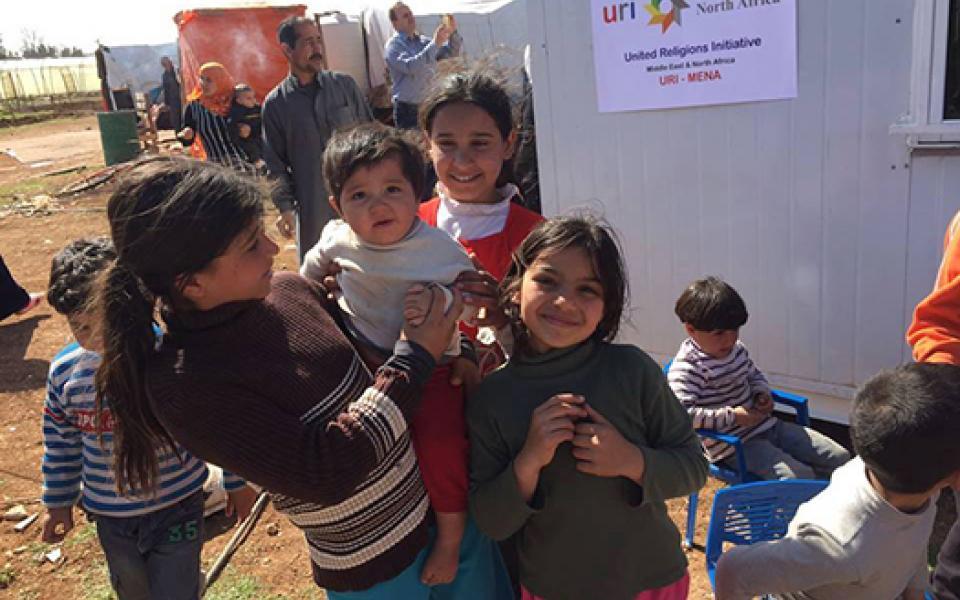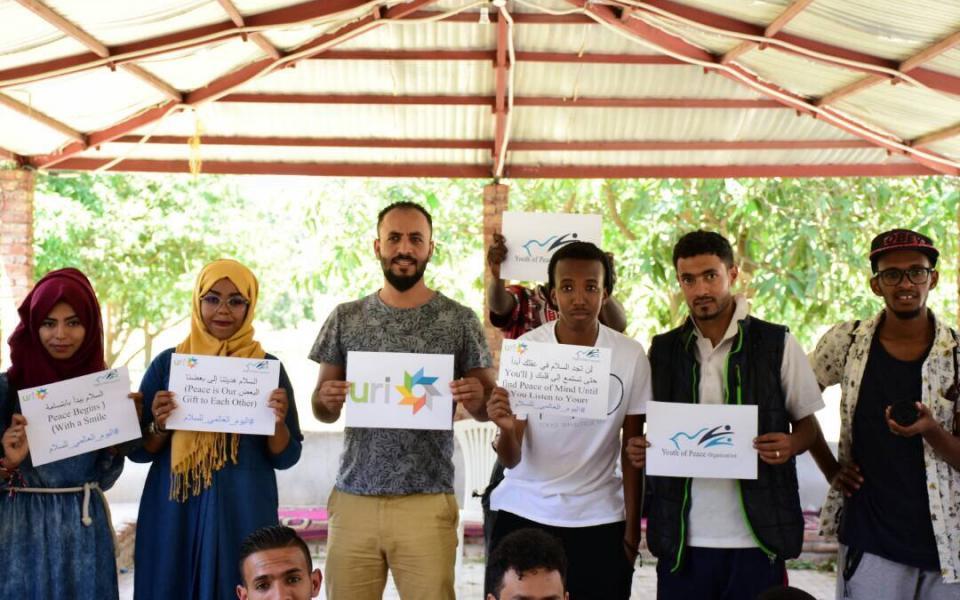Read the story on the Globe Newswire.
The decision of the United States Supreme Court on Tuesday to uphold the president’s ban on travel from nations with large Muslim populations has caused deep sorrow within the United Religions Initiative (URI) global community – the ban being antithetical to URI’s core values.
June 26, the day of the court decision, was also the 18th anniversary of the signing of URI’s Charter, a document that begins, “We people of diverse religions, spiritual expressions and Indigenous traditions around the world…”. Since URI’s founding, nearly 1,000 groups from 106 countries have signed on as members, all of whom subscribed to the values laid out in the Charter, and united in the idea of universal respect. Or, as URI Executive Director the Rev. Victor Kazanjian phrases it, “a bold vision of a peaceful, just and healed human community in which people of all beliefs, backgrounds and perspectives are connected heart-to-heart with one another, against violence of all kinds and in support of freedom of religion and spiritual expression and the rights of all people to lives of dignity and peace in America and throughout the world.”

URI members from the Middle East and North Africa region regularly visit Syrian refugees, bringing supplies for the families and educational opportunities for the children, who have to grow up in a refugee camp instead of going to school. Under the travel ban, most Syrians will not be able to enter the US.
URI Cooperation Circles and regional offices were also quick to decry the news. A recent release by ING – Know Your Neighbor: Multifaith Encounters Statement on the Supreme Court’s Muslim Ban Ruling – bears the signature of URI and a number of our Cooperation Circles, like San Francisco Interfaith Council, Silicon Valley Interfaith Council, and the Tri City Interfaith Council, alongside 117 other local and national groups.
The Coalition Statement begins, “This decision sets a dangerous precedent by upholding a government policy directed against adherents of a specific religion — a policy that targets Muslim-majority countries for religious discrimination.” The statement goes on to say, “In this time of great sadness, it is essential for America's interfaith community to stand together in reaffirming our basic values.” It goes on to list those values: respect for diversity, pluralism, and religious freedom; care for the stranger and the needy; civil liberties; and unity and solidarity. Not only are these basic American values, but they are values integral to the URI Charter as well.

Members of URI Cooperation Circle Youth of Peace, Yemen hold up peace signs. Under the travel ban, Yemenis will not be allowed to emigrate to the US, resulting in fractured families and limiting their options to escape violence.
Valarie Kaur, longtime friend of URI and founder of the Revolutionary Love Project, released a similar statement: “History will remember this decision as among the most shameful rulings in the history of the Supreme Court: It upholds a ban that indefinitely separates U.S. citizens from their Muslim families [and]…fuels the fires of hate against communities like mine.”
“The religious, spiritual, Indigenous and humanist traditions of the world teach us to see the face of the divine in one another, to love our neighbors as ourselves and to reach out to those suffering in any way, especially from injustice, poverty, violence and war,” Victor Kazanjian writes in A Call to Action on Behalf of Refugees. “We are taught to embrace all people with compassion, love and hospitality as we would a member of our own family.”
The best way to resist the harmful, isolating effects of fear and division is by reaching out and making a human connection. We suggest taking actions, such as:
- Reach out to comfort a friend or colleague from a community targeted by this ban.
- Raise your voice on social media.
- Join with others in your community to demand policy change and show public support for Muslim families.
If you need inspiration, read URI stories, which are full of examples of ordinary people triumphing against prejudice and stereotypes that lead to hate and injustice. And remember these words of Dr. Martin Luther King Jr., “The arc of the moral universe is long, but it bends toward justice.”

